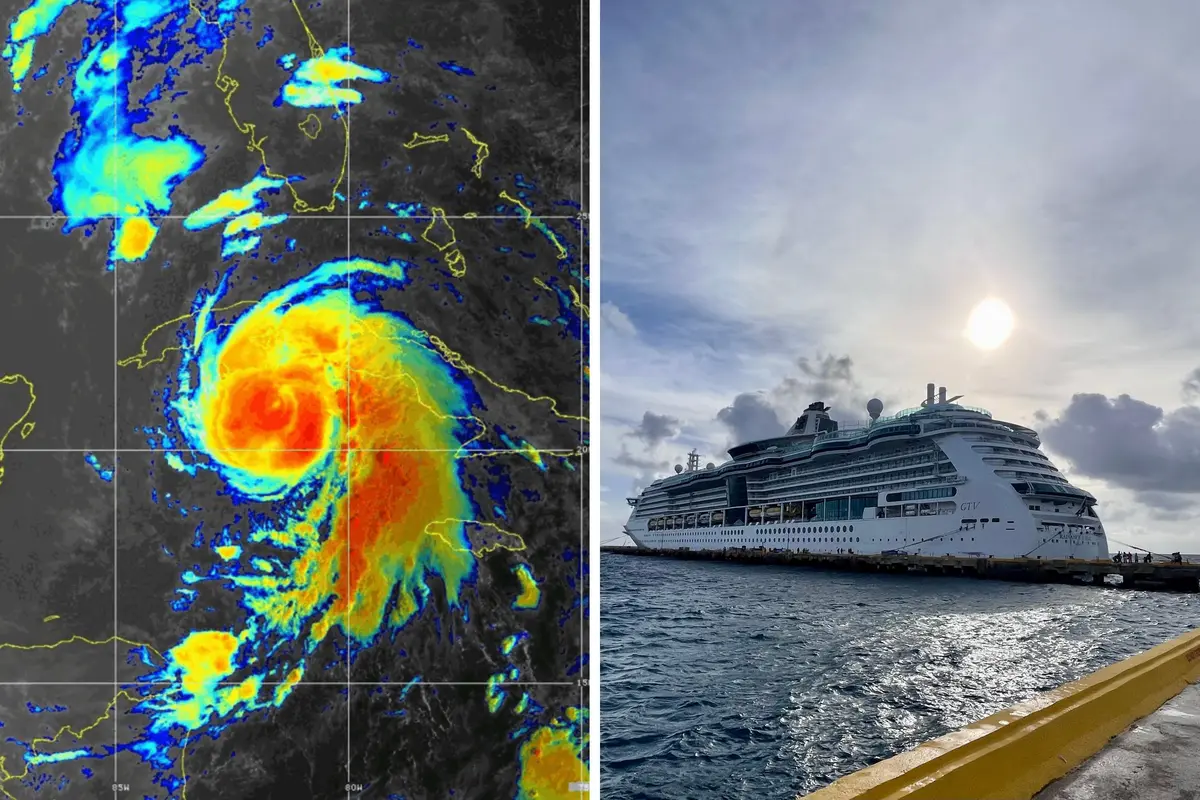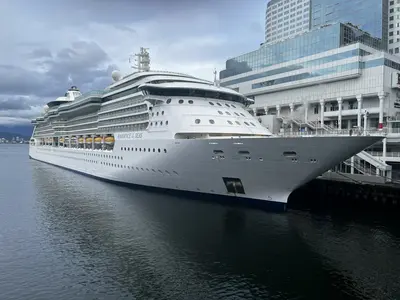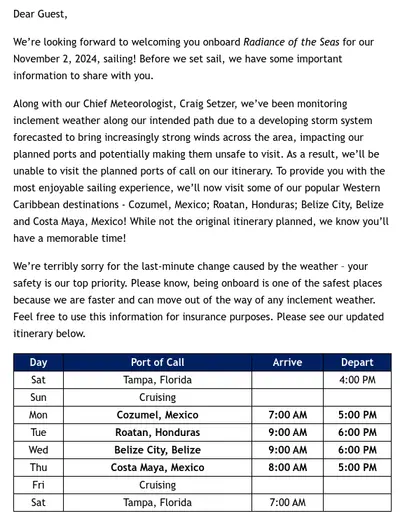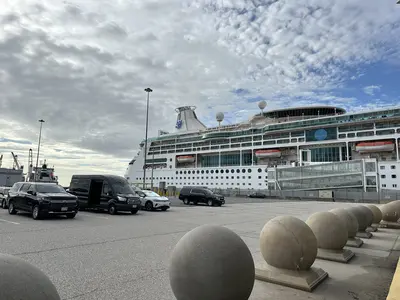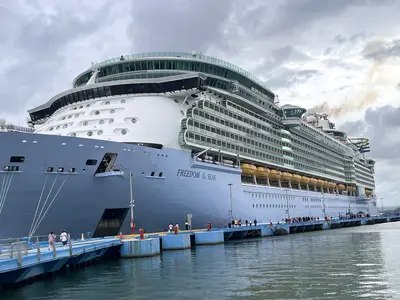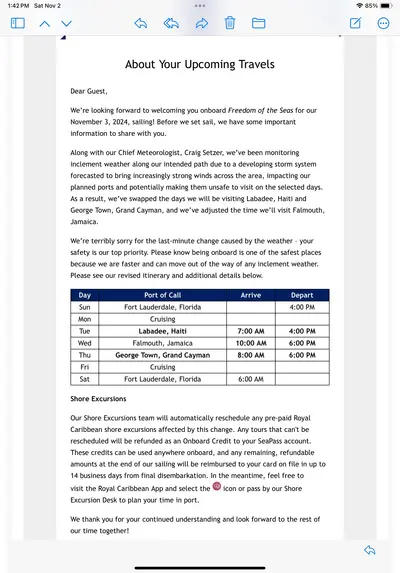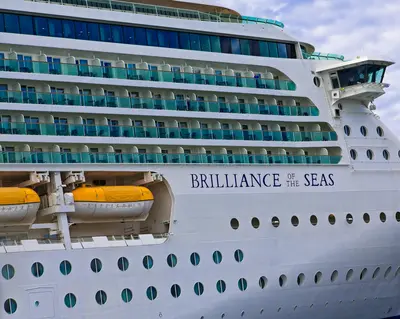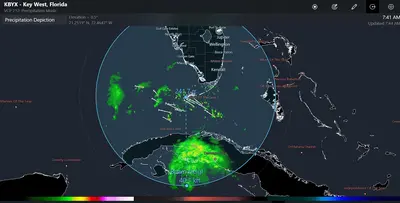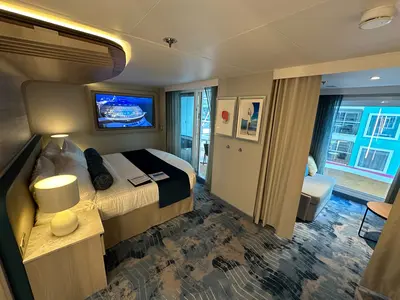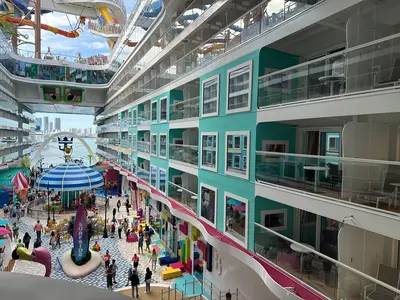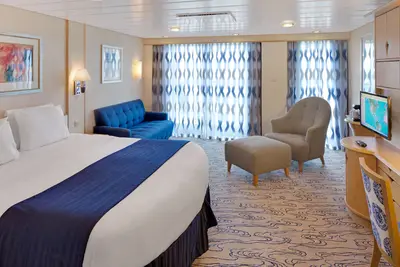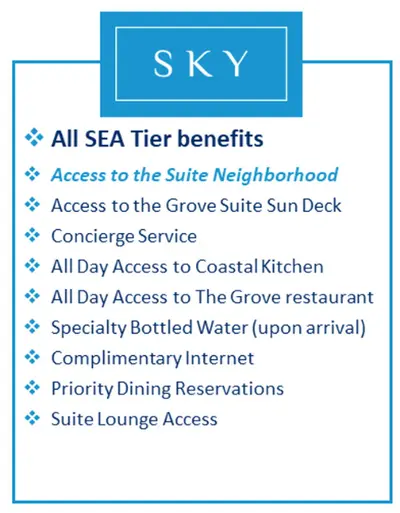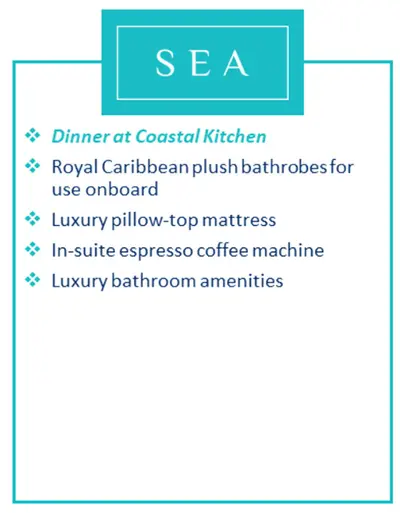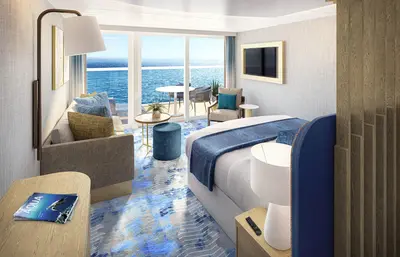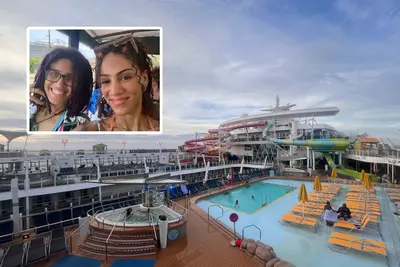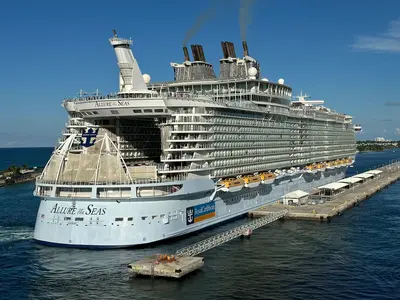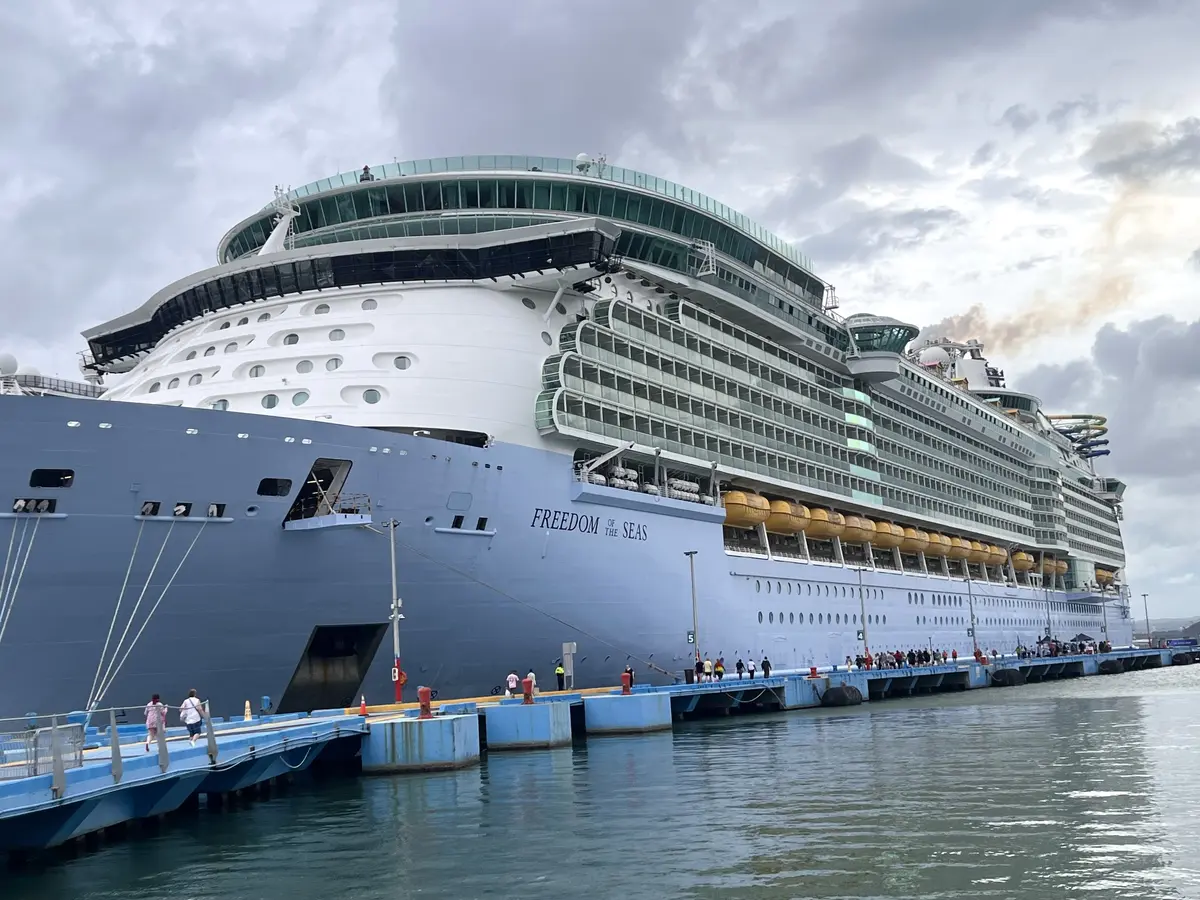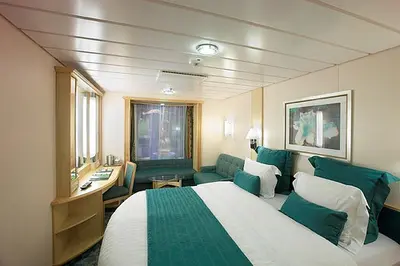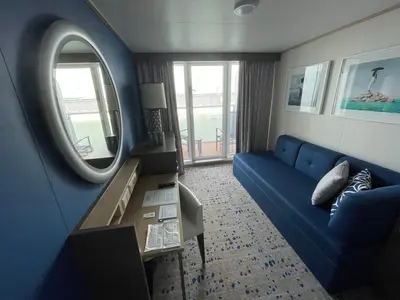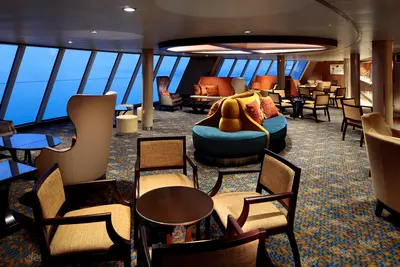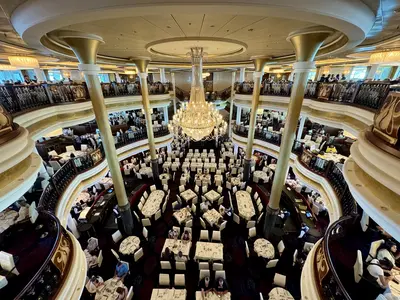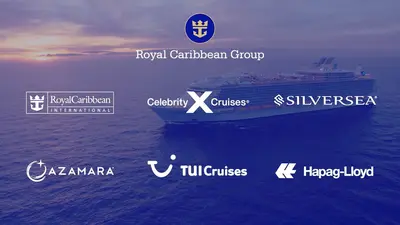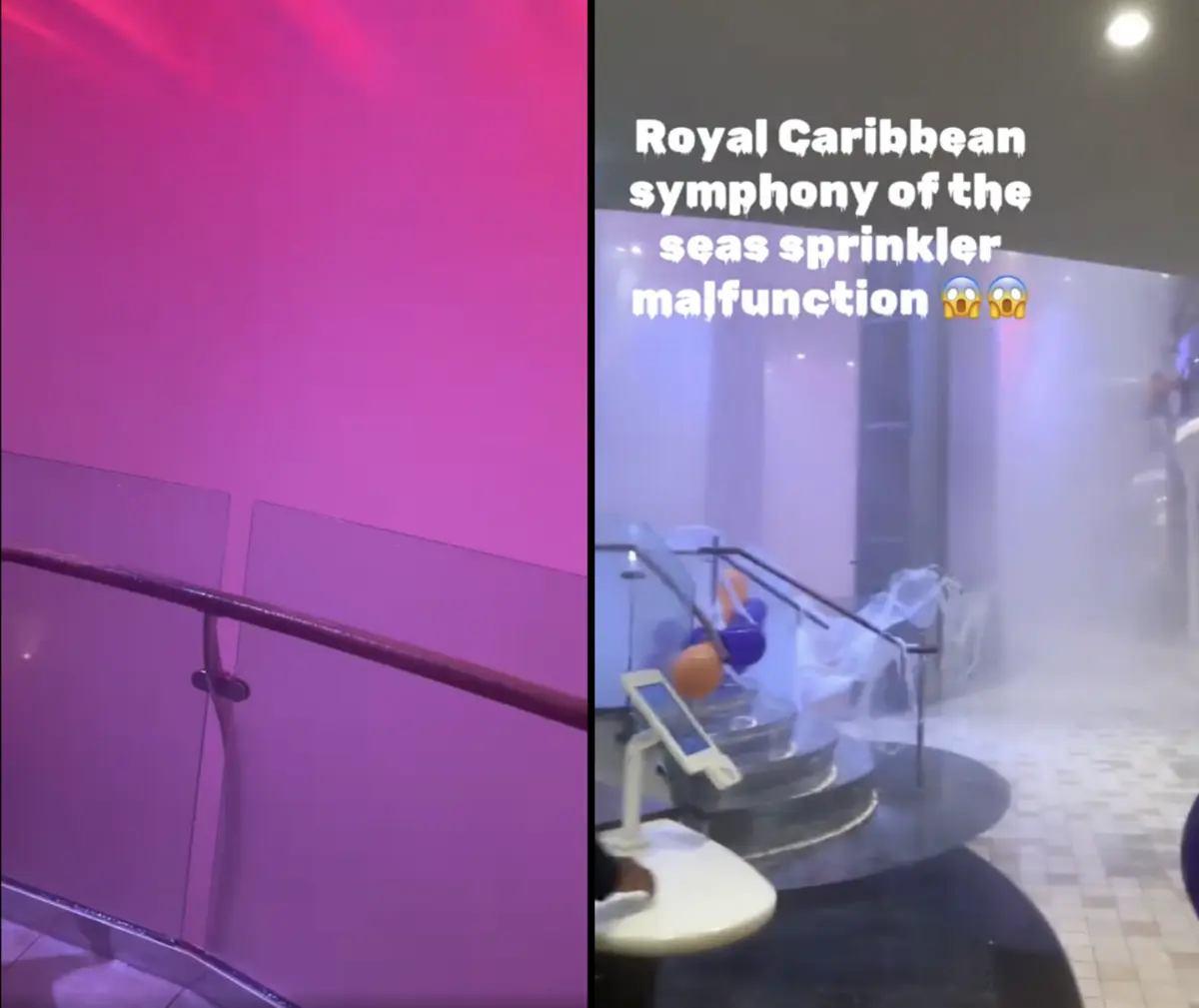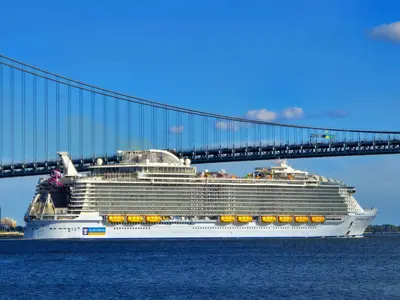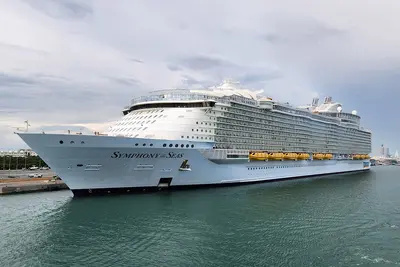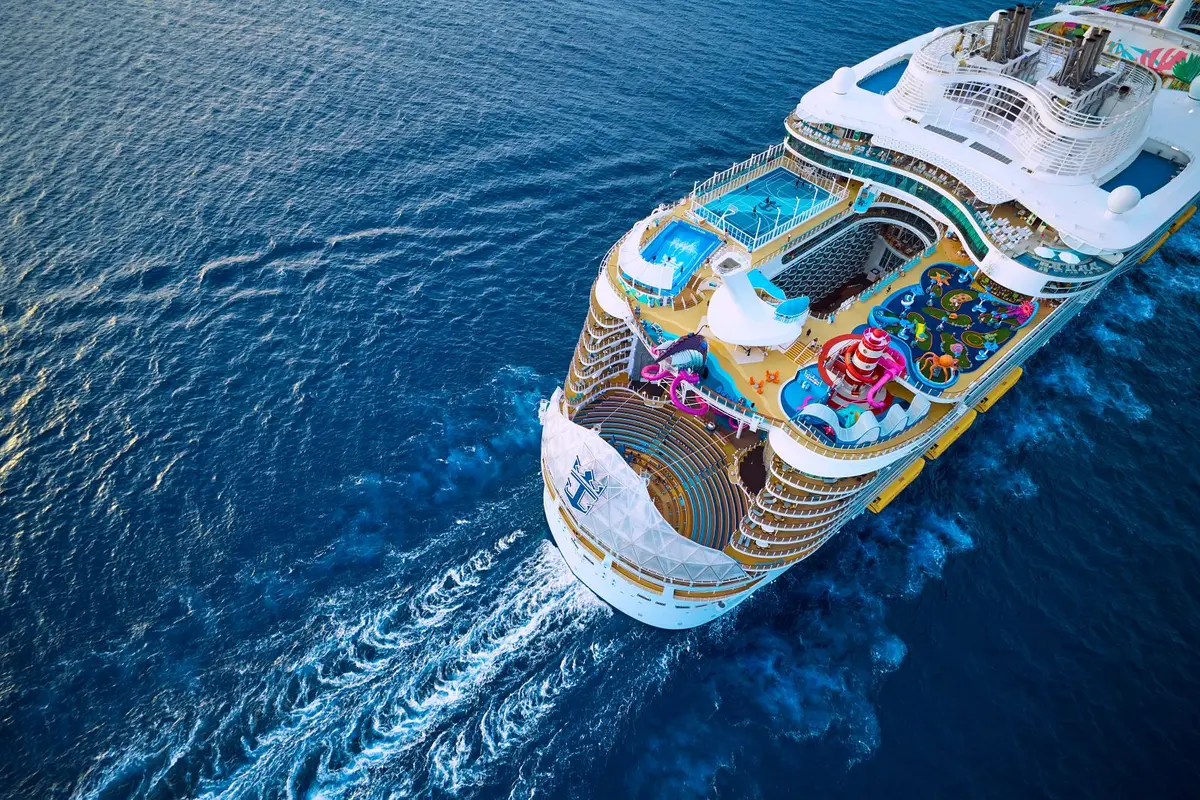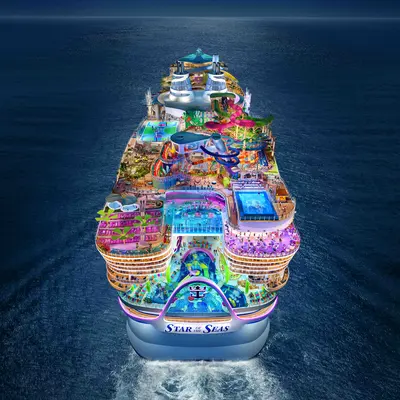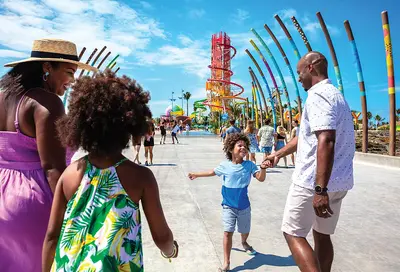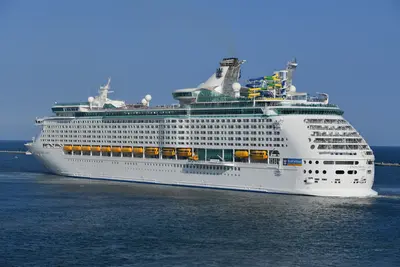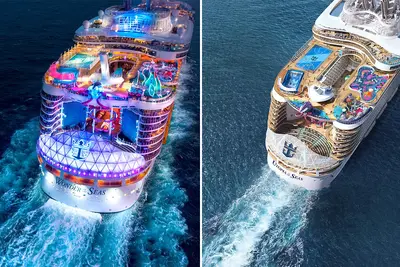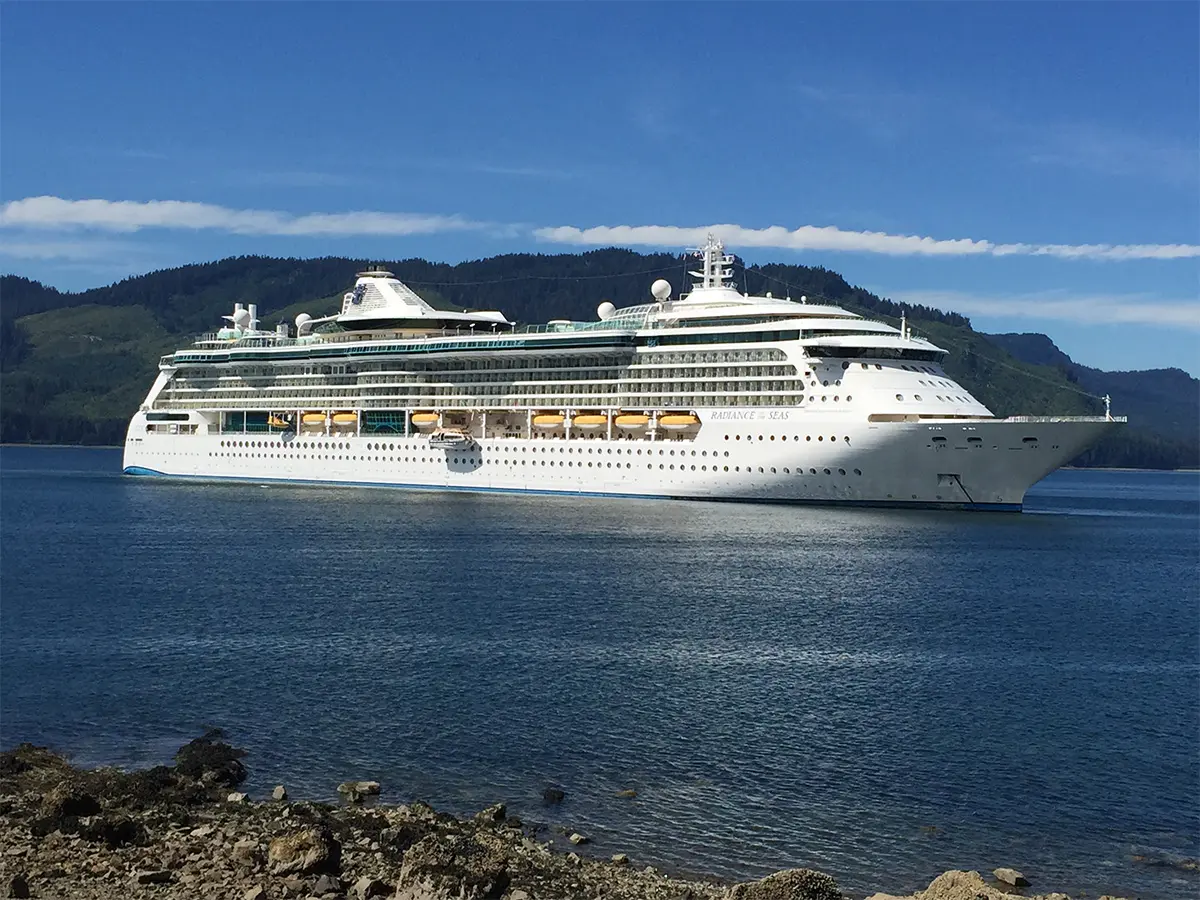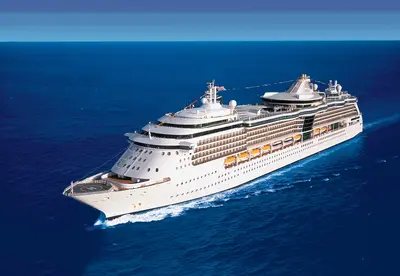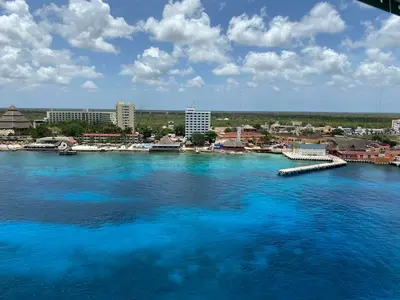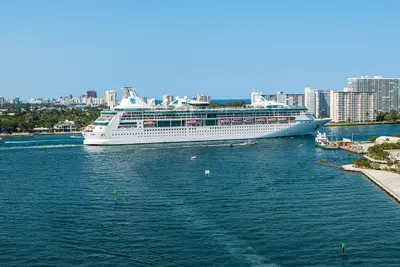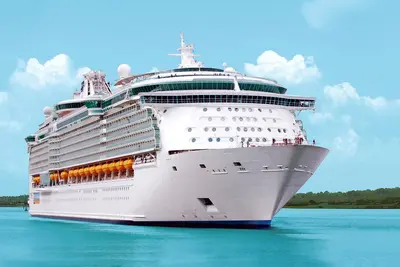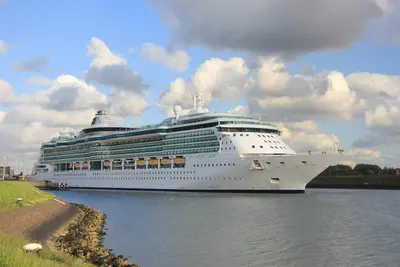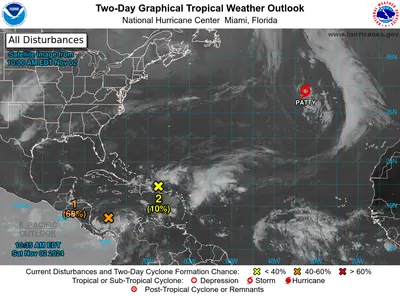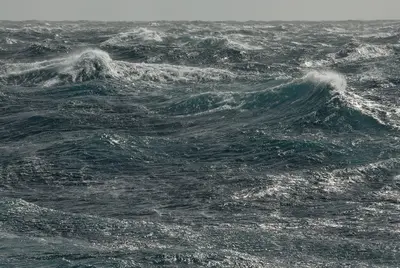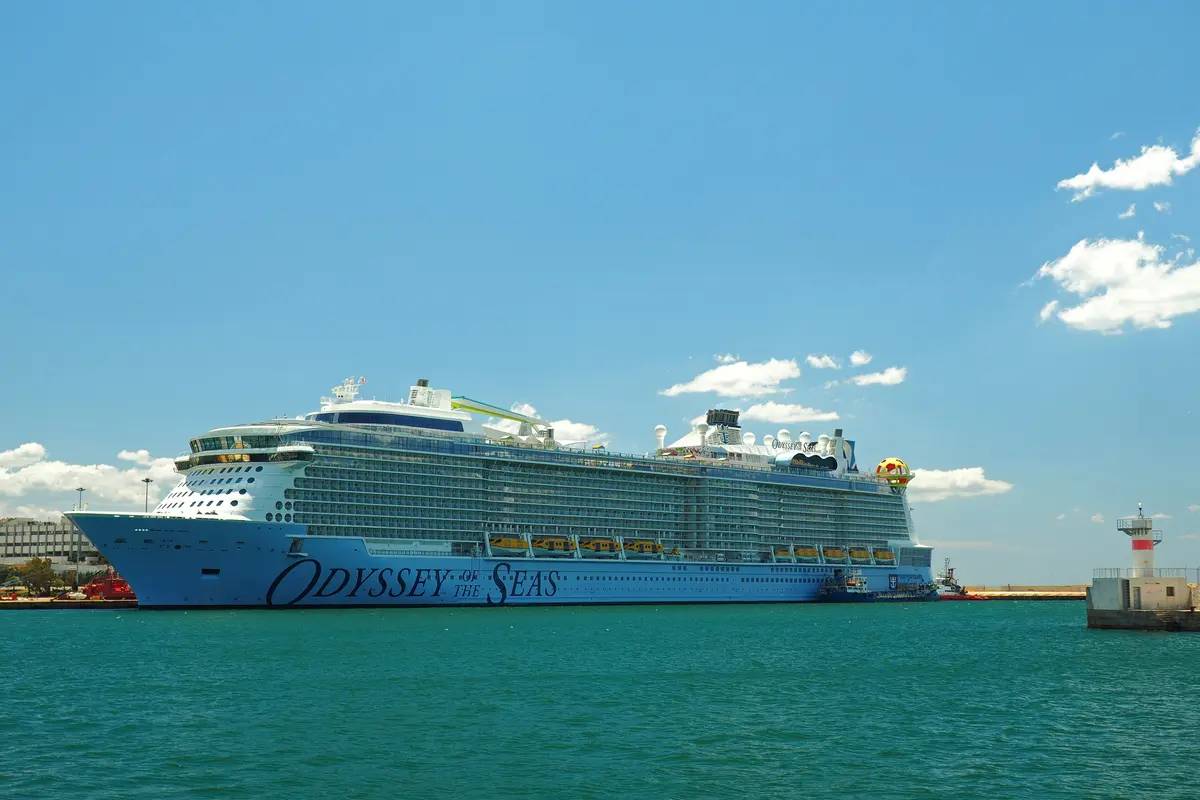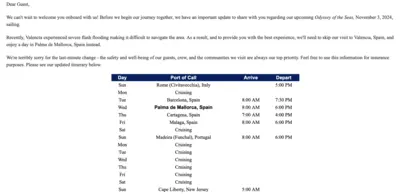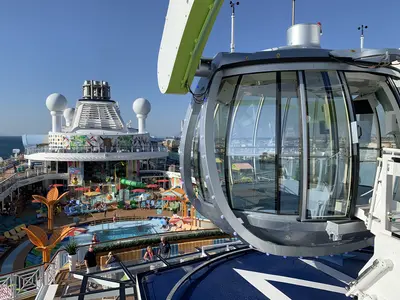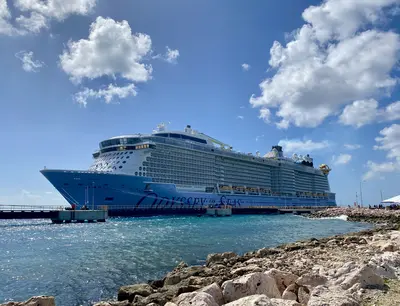As a long time traveler, I loved cruises, but what would it be like to bring a baby on a cruise ship?
Having been on over 15 cruises in my life, I thought I knew everything there was to know about cruising. I’d sailed through tropical paradises, explored countless ports, and enjoyed seemingly endless amenities aboard different ships. Yet, despite all of these experiences, I was stepping into entirely new territory on this particular trip — cruising with a baby in tow.
When I first mentioned taking our 6-month-old on a cruise, I got more than a few raised eyebrows. One family member even called me “brave.” Looking back, I’m not sure if it was bravery or just a bit of naïveté, but cruising has always been a big part of our lives, and we wanted our daughter to experience it from the start. There seemed no better time to rip off the band aid and dive into family cruising.
Even as an experienced cruiser, bringing a 6-month-old on board introduced a host of fresh challenges and a bit of nervous excitement. From managing a stroller on deck to syncing our schedule with our daughter’s naptime, I knew this trip would be unlike any other. I soon discovered a whole new side of cruising—one that revealed how well-suited it can be for families with young children. It was an eye-opening experience in the best way.
Read more: I've been cruising with my kids for 14 years. Here are the biggest mistakes I've made since they were babies
Planning the cruise
Since we live in Florida, cruising has always been our preferred way to vacation. Living so close to major embarkation ports offers easy access to a variety of ships and itineraries, which makes planning for a unique getaway far easier and avoids the hassle of long-distance travel.
When we found out we were expecting our first child in April of 2024, I couldn’t wait to start planning for her first cruise. I’d always imagined we’d have her join us on our travel adventures, and the idea of her first cruise became an exciting milestone.
As I looked into options, I learned about Royal Caribbean’s Infant Policy, which states, “Infants sailing on a cruise must be at least 6 months old as of the first day of the cruise and/or CruiseTour.”
However, for Hawaii voyages, transpacific and transatlantic routes, and some South American cruises, the minimum age is 12 months. Additionally, any cruise with three or more consecutive days at sea also requires infants to be at least 12 months old on embarkation day.
Knowing these guidelines early on was reassuring, especially as new parents. It allowed us to focus on shorter itineraries and prioritize cruises with fewer sea days. With these considerations, we felt confident in choosing a cruise that would be a comfortable, exciting, and safe experience for our little one.
After all, a successful family vacation starts with the right planning, and knowing Royal Caribbean had policies in place made all the difference.
With the age restrictions in mind, one ship quickly emerged as the perfect choice for our baby’s first adventure at sea: Icon of the Seas. Billed as the "Ultimate Family Vacation," this ship promised an experience like no other, especially for families with young children.
Our chosen itinerary was a 7-night Western Caribbean and Perfect Day cruise, allowing us to explore beautiful destinations while enjoying all of the ship's family-friendly amenities. The different neighborhoods, variety of dining options, and activities tailored for children were perfect for our first trip as a family of three. We were eager to see if Icon of the Seas could live up to its family-oriented reputation.
When it was time to book, we were in luck — a “Kids Sail Free” promotion was running, and we were thrilled to be able to take advantage of it. I’d always known this was one of the best deals for families, but as a frequent cruiser without kids, I’d never had a reason to use it before. This time, though, it felt like an ideal way to offset some of the extra costs of traveling as a family.
We initially planned to book the most affordable option and assumed that it would be an interior cabin. However, I quickly realized one of the interesting changes that come with booking a family cruise: adding a third passenger (even a baby) could actually make the balcony cabin more economical than both the interior and ocean-view options! To my surprise, adding our daughter as a third guest made the balcony stateroom the most affordable.
Read more: 7 Best Royal Caribbean Cruise Ships for Kids
About 90 days before our sailing, we received our room assignment and learned we’d be staying in a Surfside Family View Balcony Stateroom. This interior balcony room overlooked the bustling Surfside neighborhood, a family-centric area of the ship filled with activities and amenities just for kids. We got lucky with our specific stateroom, as it was just a few cabins from the end, allowing us a partial ocean view as well. Knowing we’d likely be spending a lot more time in our room compared to past cruises, we were thrilled to have a balcony that offered views of the action. We could people-watch and enjoy the lively atmosphere of Surfside right from our room while our baby napped.
One concern did cross our minds, though. On a previous cruise, we’d stayed in a Boardwalk View Balcony on an Oasis Class ship, where noise from the AquaTheater could be a bit disruptive, especially during late-night shows. We worried that the Surfside area might have a similar vibe, with the sounds of kids’ activities echoing throughout the day. Still, being in a space designed specifically for families felt perfect for our first cruise as a family of three. We couldn’t wait to see if the Surfside Family View Balcony would live up to its reputation as a top pick for families.
Embarkation day with an infant
Another change for us this time was deciding to drive to the port the day before the cruise. Since moving to Florida, we’d usually gone against the “fast and loose” approach with timing for previous cruises.
Living just 3-4 hours from all the Florida ports that Royal Caribbean sails from, we typically hit the road early on embarkation day, making it to the port with time to spare. It was simple and stress-free when it was just the two of us. Re’d get up early, pack the car, and go with hardly a stop along the way.
However, after a few road trips with our baby, we’d learned that traveling with a tiny human meant more stops, slower packing, and an extended morning routine.
Even getting out the door took longer than we were used to! With that in mind, we decided to take the age-old advice of heading to the port a day early, ensuring a stress-free start to our trip. The last thing we wanted was the added pressure of unexpected delays, traffic, or baby-related detours on embarkation day.
We opted to stay at the Intercontinental Miami, conveniently located close to the port, to make our embarkation as smooth as possible. Knowing we’d be minutes away from the ship gave us peace of mind and made the whole experience feel more like a true vacation from the start.
When embarkation day finally arrived, we were excited to head to the port and officially kick off our long-awaited family cruise. As seasoned cruisers, we knew the boarding process well, but adding a stroller into the mix brought new challenges.
Thankfully, the entire process was still as smooth as I remembered, with staff going above and beyond to make the experience stress-free. They quickly directed us to the elevators and guided us through the handicap and stroller security screening areas, which were surprisingly efficient.
Unfortunately, our check-in time coincided perfectly with our baby’s usual nap schedule. I worried the busy terminal might disrupt her routine, but luck was on our side. Our little one fell asleep in her stroller, undisturbed by the bustling atmosphere around her.
To my relief, she managed to nap her way through most of the check-in process and even onto Icon of the Seas. Watching her sleep despite the commotion was a promising start, and I felt reassured that she could handle the excitement of the cruise ahead.
Once onboard, our first order of business was to complete the muster drill at our designated station. After that, we headed straight to Adventure Ocean, following a popular tip we’d read about beforehand: go directly to Adventure Ocean upon boarding to register your child and reserve hours for the Adventure Babies program. Knowing that these slots could fill up quickly, especially on a ship geared toward families, we didn’t want to miss our chance.
Unlike the Adventure Ocean program for kids aged 3 and up, the Adventure Babies program requires reservations for a fee, adding an extra layer of planning for families. For our sailing, we were allowed to reserve six hours on day one, with the option to check back on day three for additional availability.
Fortunately, I’d planned ahead and used the cruise planner to outline the activities we wanted to enjoy as a couple. This way, I arrived ready to book our preferred time slots without our baby, maximizing our hours strategically.
With no guarantee of extra slots later in the cruise, I reserved time slots that worked best with our schedule, even if they were farther out. Knowing we had some dedicated baby-free time booked allowed us to look forward to a few adult-oriented experiences while still enjoying the family-centered atmosphere on board.
After we had completed our two most important tasks for the day, it was finally time to explore our new home away from home for the next seven nights. One of the first things that struck us about cruising with a baby was the necessity of using the elevators instead of the stairs due to the stroller. This minor adjustment highlighted how different our cruising experience would be this time around.
Fortunately, the elevators on Icon of the Seas were impressive; we never had to wait long for one to arrive. However, we quickly discovered there were several areas of the ship where taking a quick flight of stairs would have been more efficient than retracing our steps to find an elevator bank.
While this was a small inconvenience, it served as a reminder of the unique challenges and adjustments that come with traveling with a little one, and it didn’t significantly impact our overall experience.
Exploring the ship
With our logistical tasks behind us, we made our way outside to Surfside to check out this vibrant, kid-centric area for the first time. As soon as we arrived, we were immediately impressed by the fun and colorful designs that surrounded us, along with the thoughtful touches that had been implemented throughout the space. Surfside truly seemed to be designed for ultimate family fun, featuring a dry slide, carousel, splash pad, playscape, eating venues, and, most importantly for us, the Baby Bay.
Baby Bay is essentially a baby and toddler splash pad, an area only certain Royal Caribbean ships offer, typically located next to Splashaway Bay. Since babies and children who need diapers are not allowed in regular pools or Splashaway Bay, it was essential for us to choose a ship that included this feature.
These splash zones are smaller versions of the traditional splash pads but allow diapered children to enjoy water play safely. Knowing that we would be visiting warm destinations during our cruise, having the option to take our baby into a designated water area to cool off and enjoy the sunny weather was a must-have for us. It felt like a huge relief to know that our little one could join in the fun while we soaked up the sun, making our family experience much more enjoyable.
We found ourselves a little underwhelmed by the Baby Bay on Icon of the Seas, especially compared to the impressive Splashaway Bay situated right next to it. It honestly felt like an afterthought in terms of both size and features, particularly when we thought of the more engaging Baby Splash Zones found on many of the Oasis Class ships.
We noticed that there weren’t many older toddlers in this area, which made us wonder how long the novelty might last for kids older than a year.
While the space provided just enough entertainment for our baby, we questioned whether it would fully engage slightly older children. We both agreed that toddlers might quickly grow bored with the limited features or feel frustrated by not being able to join the excitement of Splashaway Bay right next door.
While Baby Bay met our needs and was a safe space for little ones, it felt like it could benefit from a few additions. Enhancements like more interactive water elements or a larger space might make it more exciting for a broader age range, keeping older toddlers entertained. That way, they’d be able to stay engaged and enjoy the fun without feeling restricted.
Another great aspect of Surfside was the carousel. Our daughter loved watching it turn and was even happier when she got to ride it. It was a fun, simple activity we could easily return to throughout our trip.
A detail I hadn’t thought to look for on previous cruises—but was impressed to find on Icon of the Seas—was the availability of baby changing stations throughout the ship. At home, I’m often discouraged by the lack of convenient changing stations, especially since most men’s bathrooms don’t include them, which limits my husband’s ability to help.
Right away, we noticed plenty of family bathrooms on board, each equipped with clean, well-placed changing stations and even baby wipes, which was a thoughtful touch. This setup made it easy and stress-free for both of us to confidently explore the ship with our baby.
Our stateroom setup
Not long after we began exploring the ship and getting our bearings, our room was ready. Upon entering, I was immediately impressed. As with most cruise ship cabins, it was compact—something we had expected—but what stood out was the impressive storage space.
This was a huge asset for us, given how many supplies we had to bring along. Cruising with a baby means packing a lot of extra items we wouldn’t have needed in the past, so it was a relief to have ample space to unpack and stay organized for the week.
Before sailing, I had researched how other families set up their staterooms to optimize having a pack-and-play and still have enough space to move around the cabin. We knew this would eat up a large chunk of our limited space, but it was a non-negotiable, unfortunately.
We opted to put it in the center of the living area, which did end up taking up most of the space. We were able to push it to one side and create a tiny walkway to squeeze through to the balcony.
It was not ideal, but we had to work with what we had. When the pack-and-play wasn’t in use, we would take the blackout tent off, wedge it between the sofa and balcony, and put the pack-and-play on the couch. This freed up the walkway and vanity, allowing us more access to the cabin.
Another feature I was thrilled about was the abundance of power outlets throughout the cabin. Typically, I find only one or two American outlets near the vanity, far from where I actually need them. In contrast, our cabin came with a smart variety of outlets and ports. We had USB plug-ins on one side of the bed, a standard outlet on the other, and several additional USB and USB-C ports conveniently located around the room.
My favorite discovery, though, was the outlets in the bathroom. This might seem like a minor feature, but on previous cruises, outlets have been at the vanity, meaning I’d have to dry my hair in the main cabin – a tricky situation with a sleeping baby.
Thanks to this bathroom outlet, I could quietly dry my hair without disturbing my husband and baby, allowing them to sleep soundly. It’s a small detail, but it highlighted how thoughtfully designed this ship was for families like ours.
I am a firm believer that any cabin on a cruise is better than not being on a cruise. One thing that I have seen time and time again in my research of cruising with small children, however, is the importance of having a balcony if possible. This immediately proved true for us in many ways.
First, our baby is a people-watcher. She loves to see what is going on and doesn’t like missing out on anything. We were able to take her outside on our balcony easily and let her take in the sights and sounds of Surfside. The balcony was also a great escape for us parents when the baby was napping.
We were able to sit out there and get fresh air and have conversations in normal volumes without feeling like we would disrupt her sleep.
While a balcony isn’t essential for every family cruise, I’d highly recommend it if it’s within budget. It added a whole new level of convenience and relaxation to our trip, and it’s a feature we’d consider essential for future cruises.
Read more: When is a cruise ship balcony worth it?
Dining with an Infant
Before we knew it, our ship was sailing away from Miami, and our cruise had officially begun. After a successful lunch at the Windjammer, we opted to try the Main Dining Room on night one.
While I was a bit nervous about how a more formal dining experience would go with a baby, I was encouraged by other cruisers who shared positive stories about dining with young children.
When we arrived at our table, we requested a high chair, which was promptly brought over, with the tray wrapped in plastic to show it was clean – a touch I really appreciated. Armed with toys to keep her entertained, we also ordered some fruits and veggies for her to chew on, as she’s just started eating solids.
The wait staff were incredible, bringing out her food items within minutes, knowing that a baby’s mealtime operates on its own schedule, quite different from a leisurely, multi-course dinner.
The staff was attentive and engaging with our baby, coming over to say hello, play peek-a-boo, and entertain her between courses.
Unfortunately, even with the staff’s best efforts, after about 40 minutes, our baby decided she was done sitting, so we wrapped up our meal. The staff were kind enough to pack some to-go desserts, even helping us navigate our stroller out of the busy dining room.
The following nights, the timing of the Main Dining Room didn’t always align with her naps, so rather than pushing through a sit-down dinner, we opted for the Windjammer buffet. This flexibility allowed us to dine when it worked best for us, and the lively atmosphere gave her plenty to watch, which kept her engaged. It was also a great opportunity for her to try a variety of fresh fruits and vegetables as part of her solids journey.
Staff and guest interactions
Throughout our trip, the crew members on Icon of the Seas were incredibly attentive and welcoming to our baby. They often remembered her name, went out of their way to say hello, and would help us gather foods like steamed broccoli for her. Their genuine care and thoughtfulness really enhanced our experience and made us feel valued as a family.
One thing I hadn’t anticipated was how much we’d end up interacting with other guests and crew, all thanks to our baby. As someone who is usually more introverted, I don’t often start conversations with strangers, but our baby seemed to have other plans.
She would make eye contact and smile at people nearby, prompting friendly exchanges. It was a great way to connect with other travelers and share experiences, especially with those interested in cruising with young children.
I had some initial reservations about how other guests might react to a baby onboard. With so much online commentary about families cruising, I was a bit apprehensive about potential negative reactions, but we had only positive interactions. Everyone we met was incredibly kind, making us feel that we belonged and that cruising with a baby is truly embraced on a family-friendly line like this one.
Excursions and infant-friendly options
One of my biggest concerns about cruising with an infant was the potential limitations on excursions. Most excursions come with age requirements of 3-4 years or older, even for something as simple as a beach day. This restriction left us with few options at our ports, so I wasn’t entirely sure what our best choices would be.
I didn’t feel comfortable going on any excursions that required riding in a vehicle since we hadn’t brought our car seat on board, so we focused on activities within walking distance or those accessible by ferry. This allowed us to prioritize our baby’s safety while still enjoying some light exploration.
I want to note that I’ve been incredibly fortunate to have already visited all of these ports on previous cruises, allowing me to experience the must-see excursions in the past. This familiarity made it easier to accept skipping certain excursions, as I didn’t feel like I was missing out on anything major. I realize, however, that this could pose a more significant challenge for families cruising to these destinations for the first time.
We ended up selecting a single beach excursion that was just a quick, five-minute ferry ride away. One of my main priorities was to keep our return to the ship as simple as possible so we could head back quickly if needed.
This excursion had the ferry running back and forth all day and was actually in sight of the ship. For the other three ports, we decided against booking excursions, opting instead to explore the port areas on foot or enjoy a beach day at Perfect Day at CocoCay.
Utilizing Adventure Babies
One resource we were thrilled to have onboard was Royal Babies and Tots, which gave us the opportunity to enjoy a few experiences just for us. We got in a date-night dinner, and my husband had a chance to try the adventurous Crown’s Edge (while I lucked into meeting the Chief Dog Officer, Rover).
We also explored the largest waterpark at sea and even caught one of our favorite shows, Love and Marriage. Having qualified childcare that was easily accessible was a huge comfort and allowed us to balance family time with a bit of fun for ourselves.
One thing I was disappointed to discover was that Adventure Ocean didn’t have a dedicated baby playroom. I’d read that some other ships have an open play area with soft flooring and toys available without a reservation—an ideal space for letting our baby roll around and play outside of our cabin.
When we asked the Adventure Ocean staff about it, they explained that Icon didn’t include this playroom, opting instead for the playscape and other features in Surfside. While Surfside is the ultimate spot for kids, those specific features are definitely geared toward older children.
However, we were pleased to find out that the ship participated in a toy rental program, offering a variety of toys packed in different bags that you can "rent" throughout your vacation. These toys are free to borrow, and you can swap them out anytime.
This was a fantastic way to keep our baby entertained with fresh toys all week, including larger ones like a light-up piano—things we wouldn’t have been able to pack ourselves.
Something else we observed was that the staff at Adventure Ocean clearly puts a lot of effort into creating memorable experiences, especially around the holidays. Since we cruised over Halloween, we had the chance to see how Royal Caribbean transforms the ship with festive touches for families.
The Promenade was decorated with Halloween inflatables and fun decor, adding to the excitement and making it easy to celebrate the holiday as a family.
They didn’t stop with decorations, though—the ship was alive with themed events designed for every age group, and Adventure Ocean was at the heart of it. Trick-or-treat stations were set up around Icon, with an early timed segment in Surfside creating a festive scavenger hunt, and the staff even put together a kid-friendly haunted house.
For families, they hosted a costume contest parade and a lively Monster Bash, where kids and adults alike could dress up and celebrate together.
For parents, these thoughtful additions meant that the cruise was engaging for all family members—even our baby could soak up the sights, sounds, and festive energy without us needing to go out of our way to seek out holiday fun.
Perks of cruising with Royal Caribbean
One added benefit of cruising with Royal Caribbean is that if you hold a Crown & Anchor status, your children automatically share your status until they turn 18. After that, their status adjusts based on the number of nights they’ve sailed.
Before our cruise, I emailed [email protected] a few months in advance to arrange this, and they assigned our daughter a Crown & Anchor number, giving her Diamond status before she even set sail.
Since she’s still an infant, she doesn’t drink anything other than formula and small amounts of water, so we happily used her four complimentary non-alcoholic beverage vouchers each day. This little perk felt like a fun bonus and allowed us to enjoy a few extra treats along the way.
Setting realistic expectations
Something that helped my husband and me enjoy this cruise was going in with the mindset of having no expectations. Because we’d both cruised to these ports before, we didn’t feel the need to check off every attraction.
We’ve had the chance to experience many of the shows and activities Royal Caribbean offers across its fleet, so this time, we focused on activities unique to Icon of the Seas.
We approached the cruise with the understanding that our baby’s schedule would dictate our days, which made it much easier to go with the flow and embrace flexibility. Some days, this meant one of us staying back in the room while she took a good nap, letting the other explore a show or activity.
Other times, it meant returning to the room early if she wasn’t up for whatever we were doing. By going into this experience knowing it wouldn’t look like our previous cruises, we could adjust our plans without feeling any disappointment.
This approach allowed us to relax and have a memorable vacation, even if it was a different kind of cruise than what we were used to. In fact, my husband did a solo excursion while we were in port in Costa Maya, while I hung back with our baby.
Overall thoughts on taking our baby on Icon of the Seas
Taking your baby on a trip essentially means parenting without the comforts of home, but it’s also what you make of it. We could either change diapers at home or do it in the Caribbean! Cruising gave us the flexibility of a vacation without the usual stresses of planning a land-based trip, like finding suitable accommodations, arranging meals and activities, or coordinating transportation.
Ultimately, Icon of the Seas was a fantastic choice for our first cruise as a family of three. With a constant variety of activities available, we never had to wonder what to do next.
Our baby especially enjoyed the Baby Splash Zone, watching other guests try the FlowRider, gazing at the floating tiles inside The Pearl, and all the bright lights and murals decorating the ship. Every corner seemed to offer something fun and stimulating for her.
Reflecting on our trip, some of our favorite benefits of cruising with a baby were the ease of returning to our cabin whenever we needed a break or nap and the freedom to leave an activity or meal early if necessary. There was no pressure to stick to any set schedule, allowing us to fill our days as we pleased and always with options close by.
While we felt that Icon of the Seas, and Surfside in particular - with its dedicated kid-friendly activities - would be ideal for children 3 and up who can fully enjoy the attractions, we still had a great experience. The ship’s amenities made it easy for us to keep our baby engaged and comfortable, and we appreciated the thoughtful touches for families.
We enjoyed our trip so much that we’ve already booked her next cruise in just a few months. It’s safe to say we’re happily raising a future cruiser!
